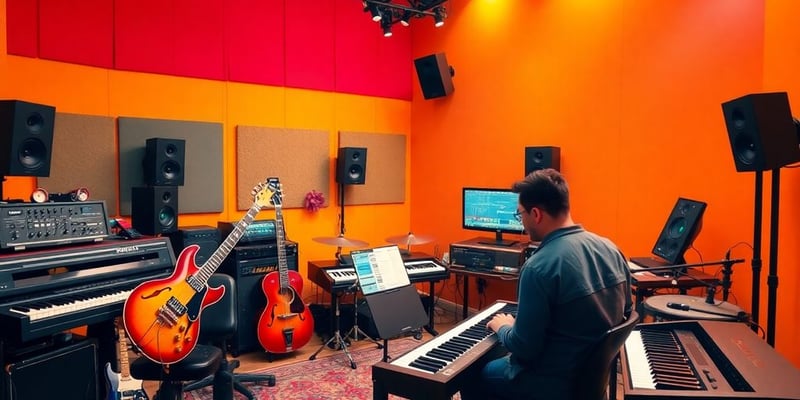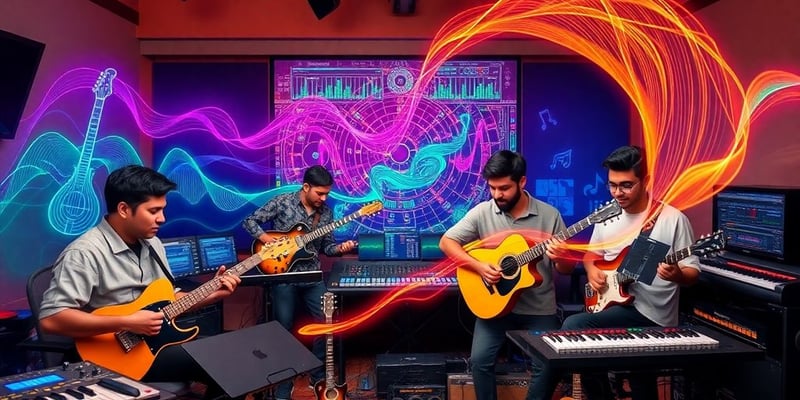
Unlocking Creativity: How AI Instruments Are Revolutionizing Music Production
Save 15%

In today's music world, AI instruments are shaking things up big time. Gone are the days when creating a song meant hours in a studio with a band. Now, with just a few clicks, AI can help you compose, arrange, and even produce tracks that sound like they came from a seasoned musician. It's not just about speed, though. AI is opening up new creative paths for musicians, letting them experiment with sounds and styles they might never have tried otherwise. Whether you're a pro or just starting, AI tools are making music production more accessible and exciting than ever.
Key Takeaways
- AI instruments are changing how music is made, making it faster and more creative.
- These tools are accessible to everyone, from beginners to seasoned pros.
- AI can help overcome creative blocks by suggesting new ideas and styles.
- The technology is democratizing music production, lowering costs and barriers.
- AI's role in music is growing, and it's here to stay, shaping the future of the industry.
The Rise of AI Instruments in Music Production
How AI Instruments Are Changing the Music Industry
Artificial intelligence is shaking things up in the music world, changing how artists create and produce tracks. With AI, musicians now have access to tools that help them compose, arrange, and even perform music. This technology is not just a novelty; it's becoming a staple in studios around the world. AI instruments can mimic the styles of famous composers or generate entirely new sounds, offering artists endless possibilities.
- AI tools can analyze vast amounts of music data to identify patterns and styles.
- Musicians can use AI to experiment with different genres and sounds without needing a full band.
- AI-generated music can be a starting point for artists to build upon, blending machine precision with human creativity.
Key Players in AI Music Technology
In the realm of AI music technology, several companies are leading the charge. Names like AIVA, iZotope, and OpenAI's Muse Net are becoming well-known in this space. These companies are developing tools that make it easier for both seasoned musicians and newcomers to explore music production.
These key players are making it possible for anyone to delve into music production without needing expensive equipment or years of training.
The Evolution of AI in Music Creation
The journey of AI in music isn't new, but it's evolving rapidly. From early experiments like David Cope's EMI, which composed music in the style of classical masters, to today's sophisticated AI tools, the field has come a long way. AI is now capable of not only understanding musical theory but also creating compositions that resonate with human emotions.
AI isn't here to replace your creativity—it's here to expand it. Embrace the collaboration and see where it takes you.
The evolution of AI in music creation is opening doors to new musical possibilities, allowing artists to push the boundaries of what they can achieve.
Enhancing Creativity with AI Instruments
AI as a Creative Partner in Songwriting
Imagine having a songwriting buddy who's always ready to jam. That's what AI tools are becoming for musicians. These tools can suggest lyrics, melodies, and even harmonies, turning the process into a collaborative effort. Stuck on a verse? AI can throw out a few ideas to get the ball rolling. It's not just about filling in the blanks—AI can analyze what's trending and suggest ideas that keep your music fresh and relevant. Think of it as a creative partner that never gets tired.
Overcoming Creative Blocks with AI Assistance
We've all been there—staring at a blank page, waiting for inspiration to strike. AI tools can be the nudge you need to get past those creative blocks. By suggesting new directions or providing a fresh take on your ideas, AI can help you break through that wall. It's not about taking over the creative process but enhancing it, offering a new perspective when you need it most. Sometimes, just having a few AI-generated suggestions can spark the creativity you didn't know you had.
Exploring New Musical Styles with AI
Ever wanted to try out a new genre but didn't know where to start? AI tools are opening doors to musical styles you might not have considered before. Whether it's mixing a bit of jazz into your pop song or adding a rock edge to a classical piece, AI makes it possible. These tools can blend genres, creating unique sounds that push artistic boundaries. It's like having a multi-genre vocalist at your fingertips, ready to explore whatever musical direction you choose.
AI is not just about automation; it's about collaboration. By using AI-generated tracks as a starting point, artists can add their own flair, blending machine precision with human artistry. This partnership allows musicians to explore new creative avenues, pushing the boundaries of what's possible in music production.
AI Instruments in Composition and Arrangement
AI Tools for Composition and Arrangement
AI tools are changing the way music is composed and arranged. These tools can analyze patterns and emotions to generate new sounds and genres. AI-driven music production tools are making waves by providing remarkable applications for composition, mixing, and mastering. Some notable AI composition tools include AIVA, Amadeus Code, and Muse Net by OpenAI. These tools learn from vast amounts of musical data, identifying patterns like chords and tracks to create unique compositions.
Case Studies of AI in Music Production
A great example of AI in action is Taryn Southern's album "I AM AI," where she used AI tools like Amper Music to create instrumental tracks. This project showed how AI can empower artists with limited traditional skills to produce professional-sounding music. Another example is David Cope's AI system, EMI, which composes pieces in the style of classical composers like Bach and Mozart. These case studies highlight the potential for AI to serve as a creative partner, inspiring new compositions and pushing the boundaries of musical creation.
AI-Driven Music Production Tools
AI-driven music production tools are transforming how music is made. These tools, such as Continue, Groove, Generate, Drumify, and Interpolate, offer a variety of features that assist in the composition and arrangement process. They can provide everything from basic beat creation to complex harmonic structures. By integrating AI tools, producers can streamline their workflow, focusing more on creativity and less on technical constraints. This shift allows for a more dynamic and innovative music production process.
Streamlining the Production Process with AI

Automated Mixing and Mastering with AI
Automated mixing and mastering have become game-changers in music production. AI tools are now able to analyze tracks and suggest optimal settings for compression, equalization, and reverb. This means that even those new to music production can achieve a polished sound without extensive technical knowledge. AI-powered plugins help ensure consistency and quality, allowing producers to focus more on creativity rather than getting bogged down in technical details.
Intelligent Sound Design Using AI
Sound design is another area where AI is making waves. Tools like Stutter Edit, developed by electronic music producer BT, utilize intelligent algorithms to create complex rhythmic effects. This technology allows producers to experiment with sounds that were previously difficult to achieve, pushing the boundaries of traditional audio editing. With AI, sound designers can now craft unique audio experiences that enhance the overall production value.
AI in Technical Aspects of Music Production
AI's role in the technical aspects of music production extends beyond mixing and sound design. From automating repetitive tasks to providing instant access to a wide range of virtual instruments, AI is simplifying the production process. This not only saves time but also reduces the need for expensive studio equipment. By streamlining workflows, AI tools in music enhance creativity by allowing musicians to focus more on their artistic expression.
Embrace AI as a tool to expand your creative horizons, not replace them. It's about collaboration, not competition, and finding new ways to bring your musical visions to life.
Democratizing Music Production Through AI
Lowering Barriers for Aspiring Producers
In the past, creating music that sounded professional required a lot of money and technical know-how. But now, AI is transforming music production by making it accessible to everyone. With tools like SOUNDRAW, artists can jump in and start crafting beats and melodies without needing a fancy studio or years of training. This is a game-changer for people who want to make music but don't have the resources to get started. Instead of spending years learning the ropes, aspiring producers can focus on their creativity and let AI handle the technical stuff.
AI Instruments for Accessible Music Creation
AI instruments are like having a virtual band at your fingertips. They can play any instrument you need, in any style, and they never get tired. This means artists can experiment with different sounds and genres without needing to hire musicians or rent expensive equipment. AI tools are also great for people who might not have the skills to play an instrument themselves. With just a few clicks, they can create complex compositions and bring their musical ideas to life.
Empowering Artists with Limited Skills
Not everyone has the time or resources to become a master musician. But with AI, that's okay. AI tools can fill in the gaps, helping artists who might struggle with certain aspects of music production. Whether it's creating a catchy melody or mixing a track to perfection, AI can lend a hand. This empowers artists to focus on what they do best, whether that's writing lyrics, singing, or coming up with new ideas. AI isn't about replacing human creativity; it's about enhancing it and making sure that anyone, regardless of their skill level, can produce music that sounds amazing.
AI isn't here to replace your creativity—it's here to expand it. With AI tools, you're not just making music; you're exploring new possibilities, finding inspiration in places you never thought to look. Embrace the collaboration and see where it takes you.
The Future of AI Instruments in Music
Trends in AI Music Technology
AI is reshaping the music scene with some seriously cool trends. Imagine AI vocal plugins that are so good, you can't tell if it's a human or a computer singing. These tools are getting better at mimicking real voices, and that's just the start. We're also seeing AI helping out in live performances, where digital singers share the stage with humans. It's like having a virtual band member who's always on point. Plus, AI is making music production more accessible, giving indie artists the chance to create high-quality tracks without breaking the bank.
Potential of AI in Music Innovation
The potential for AI in music is mind-blowing. AI isn't just about automation; it's about pushing creative boundaries. By analyzing tons of musical data, AI can come up with new sounds and even entire genres. Imagine starting a track with an AI-generated beat and then layering your own style on top. This tech frees up artists to focus on their creative vision while AI handles the technical stuff. Some artists are already using AI to craft unique compositions, blending machine precision with human creativity to explore new musical landscapes.
AI's Role in the Future of Music Production
Looking ahead, AI is set to become a staple in music production, much like a trusty guitar or a favorite DAW. It's speeding up processes like mixing and mastering, so producers can spend more time on the fun parts of making music. AI is also helping aspiring musicians learn faster by providing instant feedback and guidance. As AI tools continue to evolve, they'll offer even more ways to experiment and innovate. Whether it's creating new sounds or refining existing ones, AI is poised to keep changing how we make and experience music.
The rise of AI in music is like adding a new instrument to the band. It's not about replacing the old, but enhancing what's already there. With AI, the possibilities for creativity and collaboration are endless.
For more insights on how AI is transforming music production, enhancing creativity, and creating new opportunities for producers, check out our discussion on AI is transforming music production by enhancing human creativity, streamlining workflows, and creating new opportunities for producers.
Embracing the AI Revolution in Music

Collaborating with AI for Enhanced Creativity
In the world of music, artificial intelligence is revolutionizing music creation by providing artists and technologists with unprecedented creative possibilities. This isn't about machines taking over but rather about a new kind of partnership. AI tools are becoming like bandmates, offering fresh ideas and helping musicians explore uncharted musical territories. Imagine having an assistant who never tires, always ready to suggest a new chord progression or rhythm. This collaboration can lead to unexpected and exciting musical outcomes.
Balancing Human Artistry and Machine Precision
While AI can handle the heavy lifting in terms of technical tasks, human creativity remains irreplaceable. The real magic happens when artists blend their unique touch with the precision of AI. For instance, a composer might use AI to draft a piece, then infuse it with personal flair and emotion. This balance ensures that the music retains its human essence while benefiting from AI's efficiency.
Staying Competitive with AI Tools
The music industry is evolving, and those who adapt will thrive. Embracing AI tools is not just about keeping up; it's about staying ahead. By integrating AI into their workflow, producers can increase their output and focus more on the creative aspects of their work. It's about working smarter, not harder. As AI continues to advance, those who learn to harness its power will find themselves at the forefront of music innovation.
Embracing AI in music is about collaboration, not competition. It's about using technology to enhance creativity and push the boundaries of what's possible in music production.
Conclusion
AI is shaking up the music world in ways we never thought possible. It's not just about robots taking over; it's about teaming up with them. Musicians are finding new ways to create, mixing their own style with AI's precision. This tech is opening doors for folks who might not have had the chance to make music before. It's like having a new band member who's always ready to jam. Sure, some people worry about AI taking over, but really, it's just another tool in the toolbox. As AI keeps getting better, who knows what kind of music we'll be making in the future? One thing's for sure: it's going to be exciting.
Frequently Asked Questions
What are AI instruments in music?
AI instruments are tools powered by artificial intelligence that help musicians create, arrange, and produce music by analyzing patterns and generating new sounds.
How do AI tools help in songwriting?
AI tools can suggest lyrics, melodies, and harmonies, acting like a creative partner to help musicians overcome writer's block and explore new musical styles.
Can AI replace human musicians?
AI is not meant to replace human musicians. Instead, it acts as a collaborator, enhancing creativity and streamlining technical tasks so artists can focus more on their music.
What are some popular AI music tools?
Some well-known AI music tools include AIVA, Amadeus Code, and MuseNet, which help in composing and arranging music by learning from vast amounts of musical data.
How does AI make music production more accessible?
AI lowers the barriers to music production by providing affordable tools and virtual instruments, allowing more people to create professional-sounding music without expensive equipment.
What is the future of AI in music production?
The future of AI in music production looks promising, with potential for more advanced tools that personalize music creation and offer new ways to collaborate with AI.









